Oil price posts two-year highs - but how long can it last?
Brent rose above $59 a barrel this week, its best third-quarter showing since 2004

A free daily email with the biggest news stories of the day – and the best features from TheWeek.com
You are now subscribed
Your newsletter sign-up was successful
Oil price slump: how far will it now fall?
14 Decewmber
The oil price is still falling and was this morning heading south from a new seven-year low, which itself seemed unlikely when analysts were calling the bottom of the market this summer.
Then, last week, the oil price crashed once more. Opec's latest meeting ended in utter disarray and Brent fell below $40 a barrel amid a wider commodities sell-off.
The Week
Escape your echo chamber. Get the facts behind the news, plus analysis from multiple perspectives.

Sign up for The Week's Free Newsletters
From our morning news briefing to a weekly Good News Newsletter, get the best of The Week delivered directly to your inbox.
From our morning news briefing to a weekly Good News Newsletter, get the best of The Week delivered directly to your inbox.
This morning, the benchmark fell to around $37.40 a barrel – a low not seen since December 2008.
Why oil is falling
Prices are sliding for three broad reasons. Opec is in such discord, The Guardian notes, because member states in economic turmoil want higher prices without having to cut their own production, relying instead on Saudi Arabia to be a 'swing' producer.
The de facto cartel leader will not act alone – and especially not if big non-Opec competitors like Russia continue pumping at record levels.
A free daily email with the biggest news stories of the day – and the best features from TheWeek.com
Then there are wider economic factors that have entrenched oversupply. Demand has not risen as much as expected because fuel economy and renewable energy use are both increasing at a time of concern over climate change; supply has not fallen as much as would have been expected because of unprecedented efficiency in production.
Finally, there is Iran. With a nuclear deal signed it is ready to start increasing exports to boost its economy – and Amir Hossein Zamaninia, the deputy oil minister, told Bloomberg there is "absolutely no chance" it will delay its plans. He even said it was prepared for a "worst case scenario" on prices as a result.
How low will oil go?
What is the worst case? Jay Hatfield, co-founder and president of Infrastructure Capital Advisors, told The Guardian prices can't fall much lower but could take root between $35 and $40, while Daniel Pavilonis, senior commodity broker with RJO Futures, reckons there will be a low below $35 and as low as $30.
David Rubenstein, co-CEO of the Carlyle Group, told Business Insider he's also looking for buying opportunities in the energy sector at around $30 a barrel.
Goldman Sachs has outlined the nightmare scenario for producing companies and countries in which the oil prices falls to a 'cost price' around $20 a barrel. At least this wouldn't last long as it'd be sure to clean out excess production.
But don't believe the sell story too readily, says Liam Halligan in the Daily Telegraph. He argues that prices simply cannot keep falling and will not get as low as the level foreseen by Goldman, explaining that with China's economy growing, the "plucky US shale industry… showing signs of genuine strain" and investment being withdrawn rapidly, "crude prices could bounce back soon".
Oil price is still sliding – what does it mean for petrol?
11 December
The latest oil price slide is showing no sign of abating.
While the sharp drop of close to three per cent on Monday has not been replicated, both the main international and US benchmarks for the commodity have fallen every day this week, in the process shrugging off a mildly positive report on crude oil stockpiles in the US.
Yesterday Brent, the gauge for prices in the North Sea among other international markets, settled below $40 a barrel for the first time since 2009 – and it edged lower again this morning to $39.60 a barrel. Its US counterpart, West Texas Intermediate, fell below $37 and was also falling this morning.
Reuters says the latest fall was caused by Opec revealing another increase in production across its 13 member countries in November, adding to bearish sentiment on already excessive global supply after the cartel removed its target supply 'ceiling' on Friday.
There was also an unhelpful rise in the dollar, which makes dollar-denominated commodities such as oil more expensive to overseas buyers, and growing concern of weaker demand for fuel ahead of what is likely to be a mild winter as refining activity remains muted.
With very little to change the view that oil prices will stay depressed – and could fall significantly even from the current unprofitable lows – attention is turning to the consequences of the slump.
Economically for the UK there are arguments on both sides: weaker revenues from the North Sea should, in theory, be offset by consumer spending increases as lower petrol prices benefit shoppers in a crucial Christmas trading period.
And the latest sign of this benefit being passed on came today when supermarket Morrisons announced it is reducing petrol prices to a maximum of 99.9p per litre from today. Sky News says that the group is likely to be followed by other supermarkets, but that the average price will remain above the symbolic £1-per-litre mark for the time being.
It's the first time in six years the 'big four' grocer has offered petrol at less than the £1 threshold.
Oil price still under pressure amid storage squeeze
10 December
The oil price settled lower for the fourth consecutive session on Wednesday, as fears over the ongoing global supply glut mounted.
Downward pressure is expected to continue, especially if, as expected, the international energy watchdog confirms that oil storage capacity around the world is being squeezed to an unprecedented extent.
Yesterday the international benchmark, Brent, fell 0.4 per cent in Europe to $40.11 a barrel, while US benchmark West Texas Intermediate fell 0.9 per cent to $37.16 in New York. This was despite the US Energy Information Administration reporting a modest fall in domestic reserves for the first time in ten weeks.
The Wall Street Journal says the news initially prompted a rise in the oil price, which was reversed when it emerged that stockpiles of derivative products such as diesel had continued to rise.
In any case, a small dip in reserves in the US will not be enough to reverse bearish sentiment driven by concern over broader global oversupply. The Times reports that the International Energy Agency will publish updated numbers today showing just 250 million barrels of storage capacity remains unfilled, out of 3.5 billion in total.
Meanwhile, Opec is in discord over its strategy of maintaining high production to force out rivals, while non-Opec producers such as Russia continue to pump at record levels. Until there is significant movement from either side - and with Iran waiting in the wings to ramp up exports - oil is unlikely to break significantly higher.
One group that could win from the turf war is motorists. The Guardian says the RAC is now predicting that some lower-cost retailers such as supermarkets could respond to the latest slump by dropping petrol charges to below £1 a litre "in time for Christmas".
With wholesale costs not having matched the broader dip, average petrol prices will, though, remain above this threshold.
"Britain's supermarkets and cheapest fuel retailers… consistently tend to be 3p to 5p a litre cheaper than the UK average price. We are still some way off the average price of unleaded reaching the £1 a litre mark, but this will be a big step in the right direction," Simon Williams, RAC spokesman, said.
Oil price: why are analysts predicting a crash?
09 December
After months of relative stability, albeit at unprofitable lows, the oil price is in the midst of another sharp downward turn.
International benchmark Brent crude dropped below $40 a barrel during yesterday's session, for the first time since early 2009, while US benchmark West Texas Intermediate fell below $37.
Both have recovered by about $1 since, as markets have regained a degree of poise, but remain at levels not seen for nearly seven years.
Sentiment is undeniably bearish and predictions abound of a fresh crash to come. The forecast from Goldman Sachs for prices to hit $20 a barrel in the near future, which seemed far-fetched when first uttered earlier in the autumn, is now seen as a realistic target for a market floor that continues to give way.
"The oil market is driven by fear," Ole Hansen, from Saxo Bank, told the Daily Telegraph - not just a fitting epithet for a sector in apparent freefall, but also an analysis of the reasons why – and a question of its logic.
For the latest slump comes at a time when oil demand is rising: "Bank of America said oil demand has risen by 1.8m barrels a day over the past year, the second strongest in a decade," says the Telegraph. Prices are already so low that many producers cannot make a profit.
There is, of course, the supply glut. There may be some relief here today as the American Petroleum Institute forecast that US oil reserves fell for the first time in ten weeks last week – if that's confirmed in official statistics later today, oil might bounce higher. US watchdogs also revised lower a prediction for domestic production next year.
Short positions in oil – bets on a lower price – have risen over the past three weeks to record levels, which could fuel a major short-covering rally if prices begin to move upwards.
In short, there are those who believe the scene is set for a surprise rise in oil. "Fundamentals remain bleak but the question is also how much more aggressive can sellers be when the downside becomes more limited?" Pete Donovan, broker at New York's Liquidity Energy asked Reuters.
The truth is, though, that there will need to be more than a little movement on reserves and demand to shift sentiment on supply and hold prices higher in the medium term. The fear has set in.
A sign of movement is needed from big producers from within or outside of Opec to convince traders that any turnaround will be sustainable, especially ahead of the return of Iran to the market and the exports it will bring. Otherwise predictions of another plunge may yet prove accurate.
Oil price slump: can it still fall further?
08 December
The oil price broke lower again yesterday and set a new nadir for the year, at a level not seen since early 2009.
Opec's decision on Friday not to cut its production target - in fact to offer no certainty on a production ceiling at all - has shaken up traders.
The cartel appears in utter discord and comments from its president that it is in "wait and watch" mode until next year have convinced many it is no longer in control of the market.
As the market is awash with oil - onshore reserves are at record levels and tankers are queuing at ports in the US and Asia - this adds up to a very bearish case.
Throw in a rise in the already-mighty dollar on Monday, which makes oil more expensive for foreign buyers, and you have a recipe for a major sell-off.
International benchmark Brent Crude fell sharply in London and then by five per cent in New York, eventually reaching $40.75.
This is almost $2 below the near-six-year low it had reached in August. US benchmark West Texas Intermediate slumped to less than $38 a barrel. Can oil go lower?
The short answer is yes: analysts have been warning that we will not see a true bottom until Iran has re-entered the market and that, in the short term, any breach of key resistance at around $40 for WTI could presage a major crash.
The Times is this morning warning of an "all-out panic" that could trigger a "freefall" to previously forecast levels around $20 a barrel.
Euan Mearns, editor of OilPrice.com, also says there is "little in the numbers to hope that $40 may hold" and that $20 is a realistic possibility in the near future.
Patrick Pouyanne, the boss of French oil giant Total, told the BBC that oil supply would continue to outstrip demand until at least the second half of 2016, meaning that there would be no recovery in prices next year.
There are some, though, who reckon the market will bounce back quicker than that.
Alain Bokobza, head of global asset allocation at Societe Generale, told CNBC that, with de-facto Opec leader Saudi Arabia running a budget deficit of 22 per cent and other members in dire financial straights, it might be forced to cut production sooner.
"At some stage they need to agree with some big Opec producers - that means Iran -and they will come to the market sooner rather than later [to cut] production. That day, better not be short oil," he said.
-
 Why is the Trump administration talking about ‘Western civilization’?
Why is the Trump administration talking about ‘Western civilization’?Talking Points Rubio says Europe, US bonded by religion and ancestry
-
 Quentin Deranque: a student’s death energizes the French far right
Quentin Deranque: a student’s death energizes the French far rightIN THE SPOTLIGHT Reactions to the violent killing of an ultraconservative activist offer a glimpse at the culture wars roiling France ahead of next year’s elections
-
 Secured vs. unsecured loans: how do they differ and which is better?
Secured vs. unsecured loans: how do they differ and which is better?the explainer They are distinguished by the level of risk and the inclusion of collateral
-
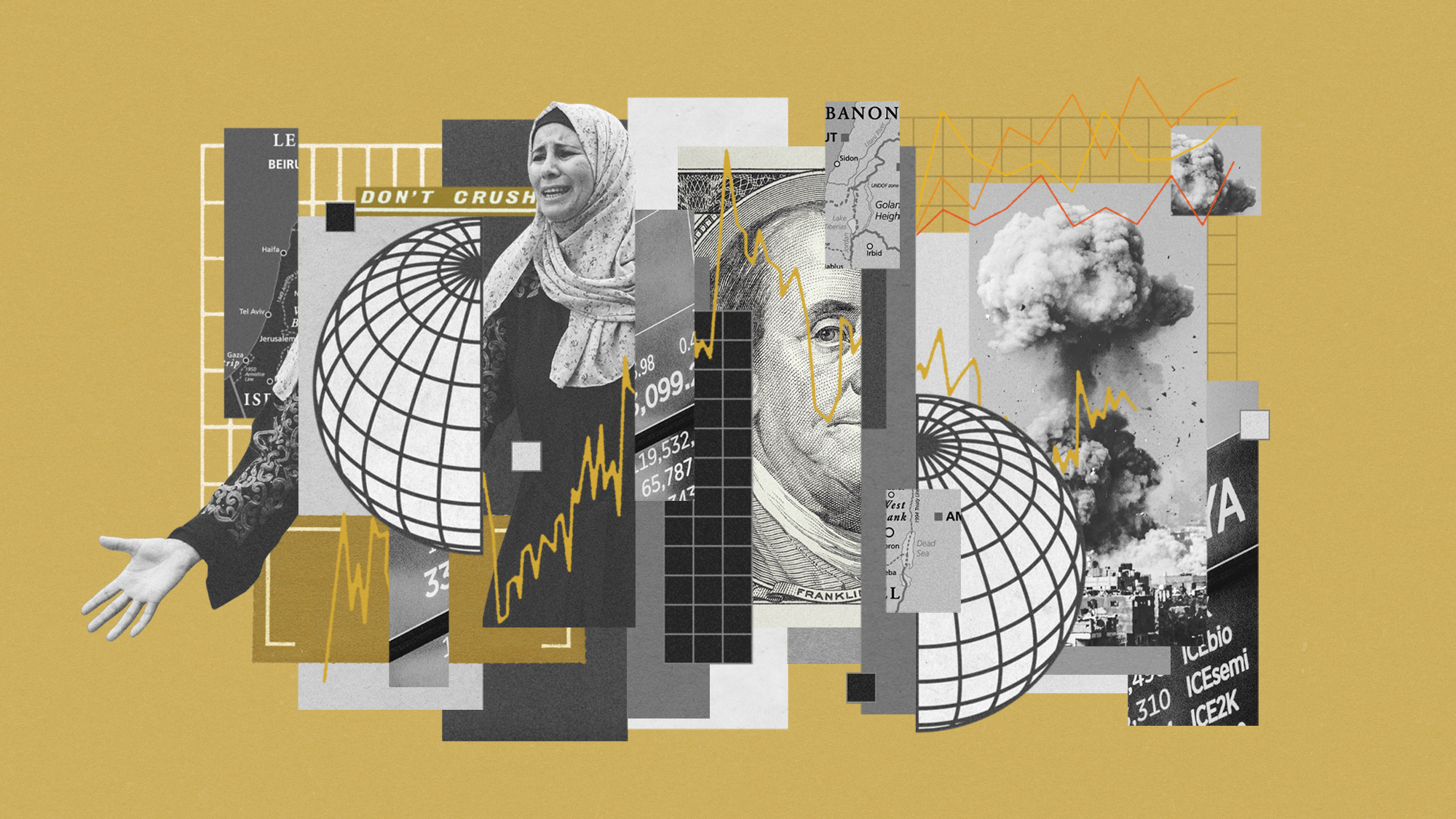 How might the Israel-Hamas war affect the global economy?
How might the Israel-Hamas war affect the global economy?Today's Big Question Regional escalation could send oil prices and inflation sky-high, sparking a worldwide recession
-
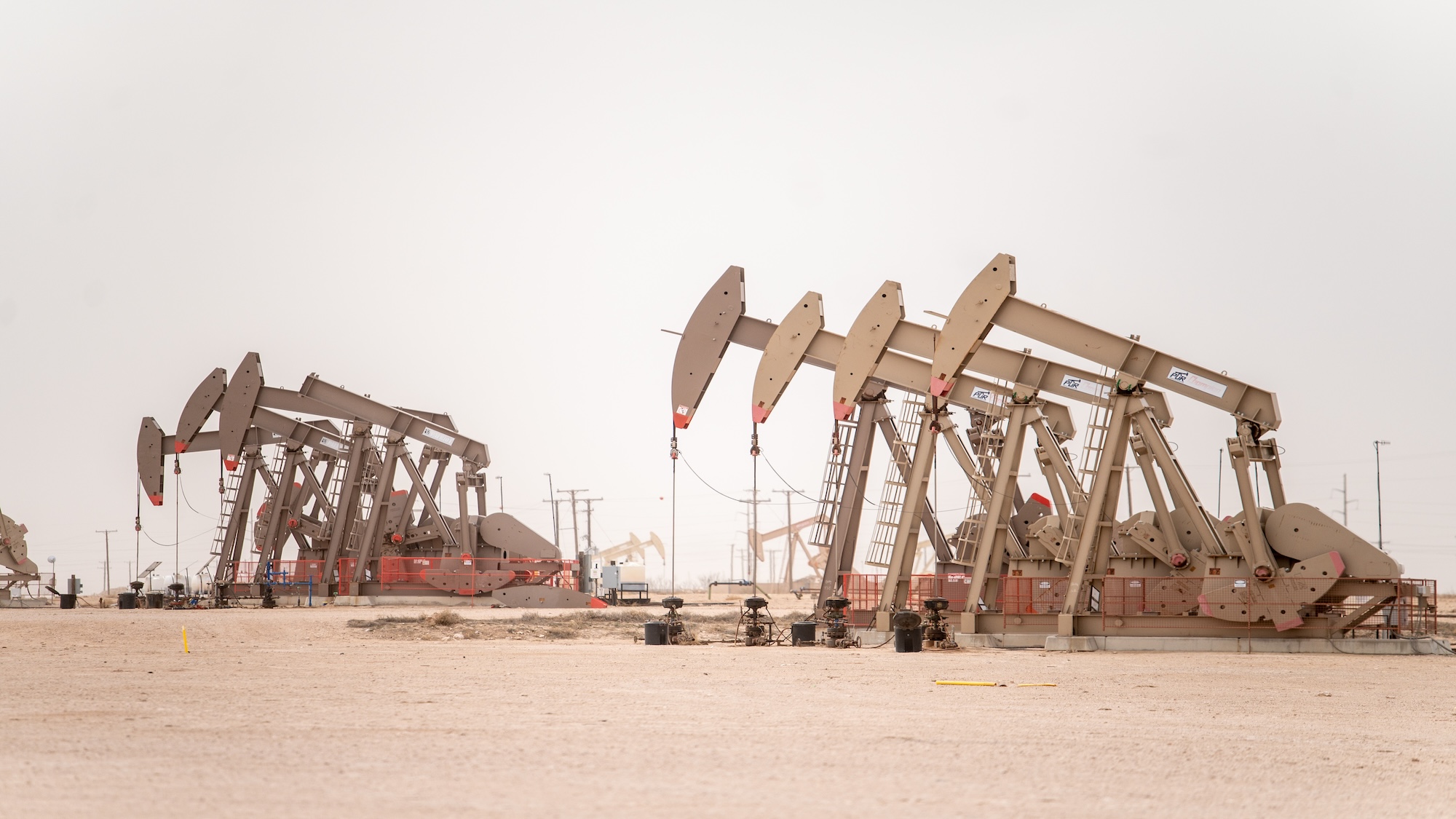 Recent mega-mergers could signal a turning point for the US oil industry
Recent mega-mergers could signal a turning point for the US oil industryTalking Point Both Chevron and Exxon have recently spent billions to acquire smaller oil companies
-
 Has Saudi Arabia lost control of oil prices?
Has Saudi Arabia lost control of oil prices?Today's Big Question Kingdom goes it alone to cut production, risking tension with US and reigniting cooling inflation in Europe
-
 US angered by Opec+ oil cut
US angered by Opec+ oil cutSpeed Read Energy prices to rise further as producers slash supply by two million barrels a day
-
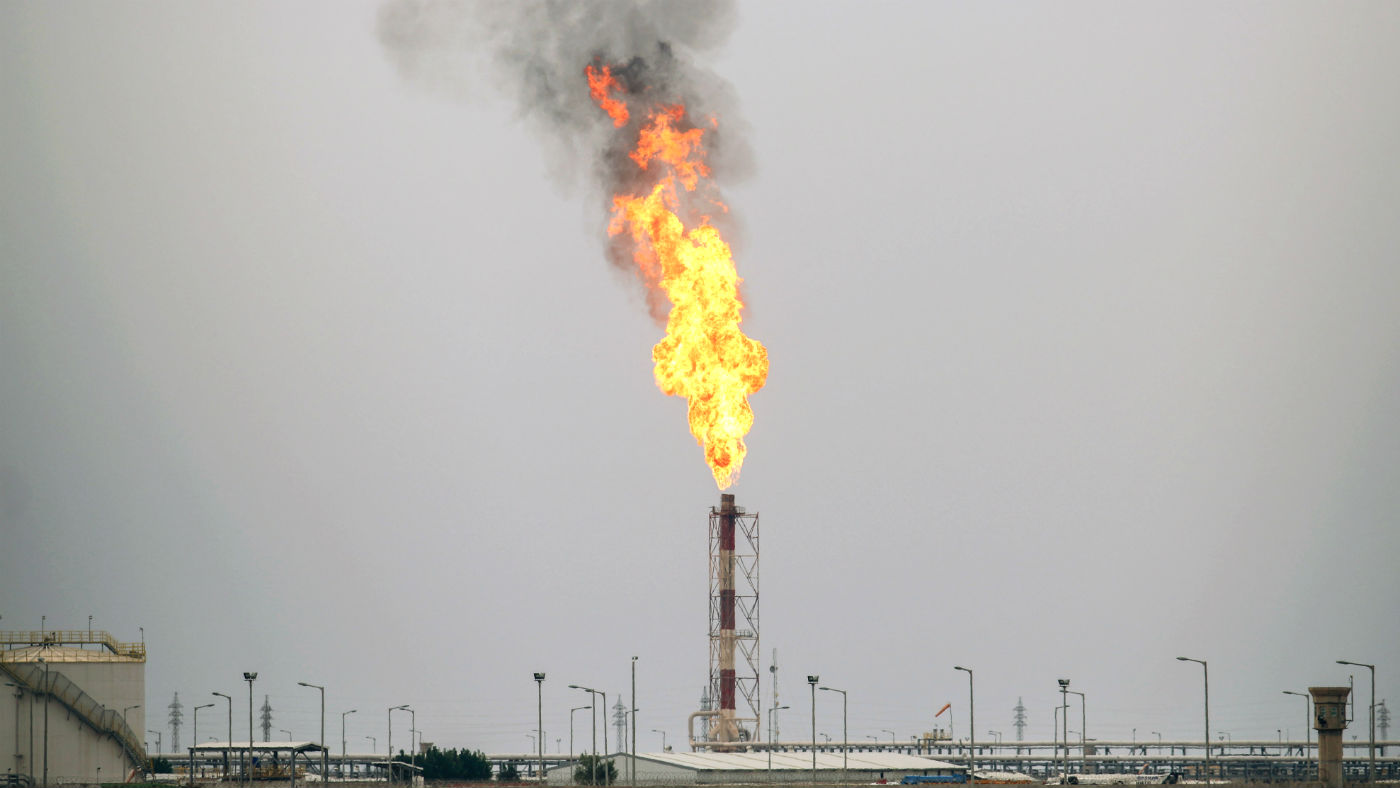 Global oil demand forecast lowered for 2020 and 2021
Global oil demand forecast lowered for 2020 and 2021Speed Read IEA report says jet fuel demand remains the major source of weakness
-
 Are US-Iran tensions flaring again?
Are US-Iran tensions flaring again?In Depth Trump threatens military action over Twitter
-
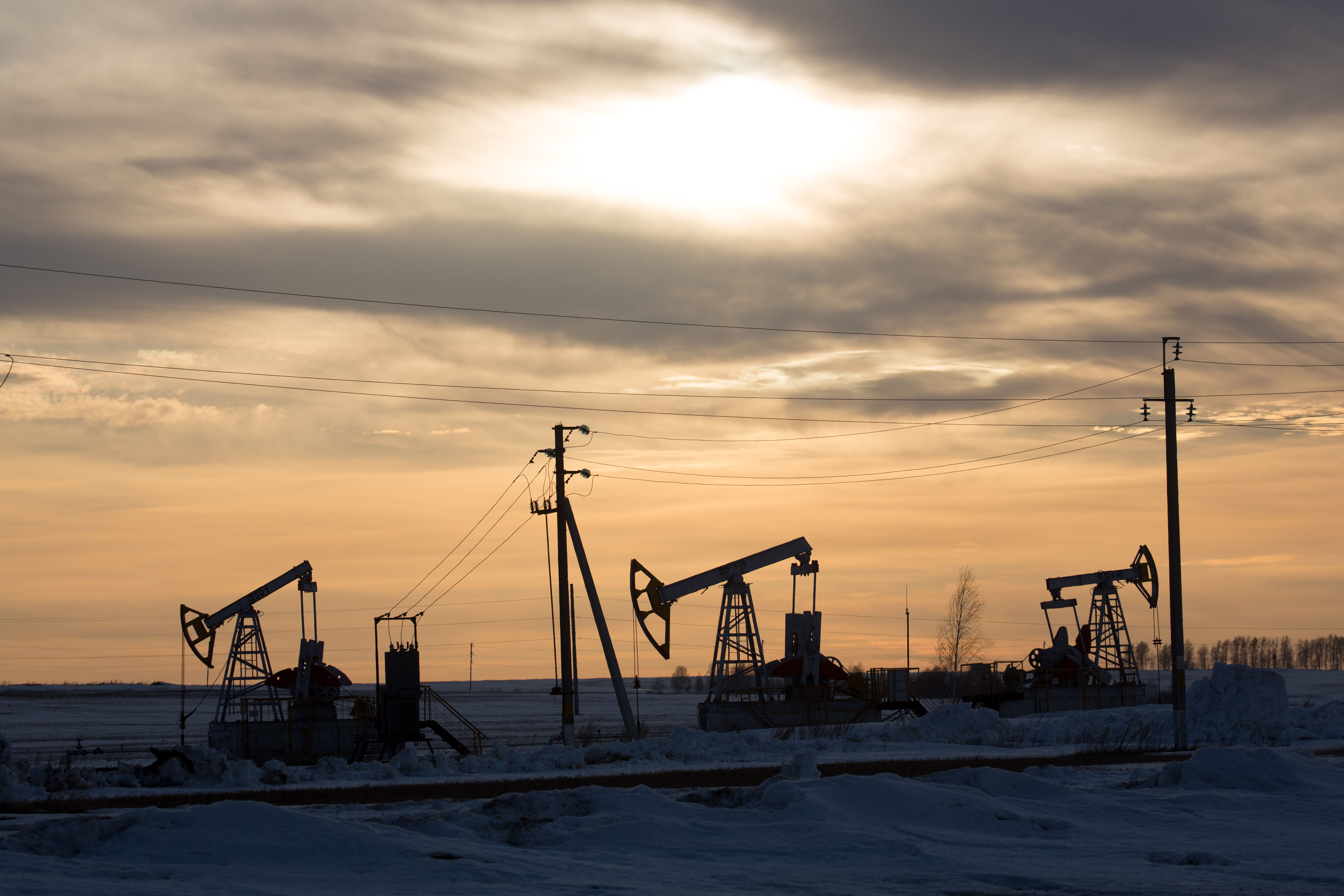 Can a deal be struck to raise oil prices?
Can a deal be struck to raise oil prices?In Depth Opec+ will convene today over video link in a bid to boost crude
-
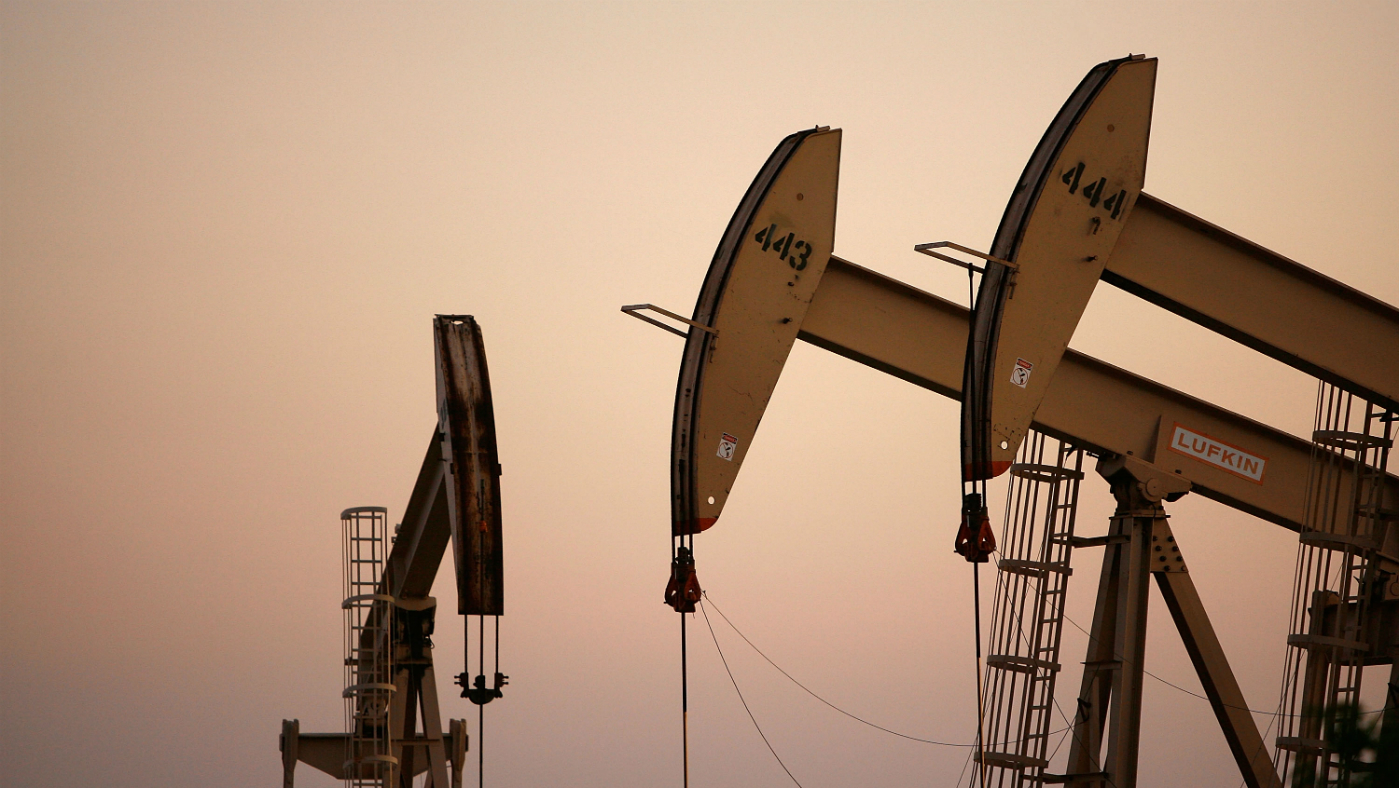 What do negative oil prices mean?
What do negative oil prices mean?In Depth Perfect storm of oversupply and storage shortages sees producers paying to get rid of US crude